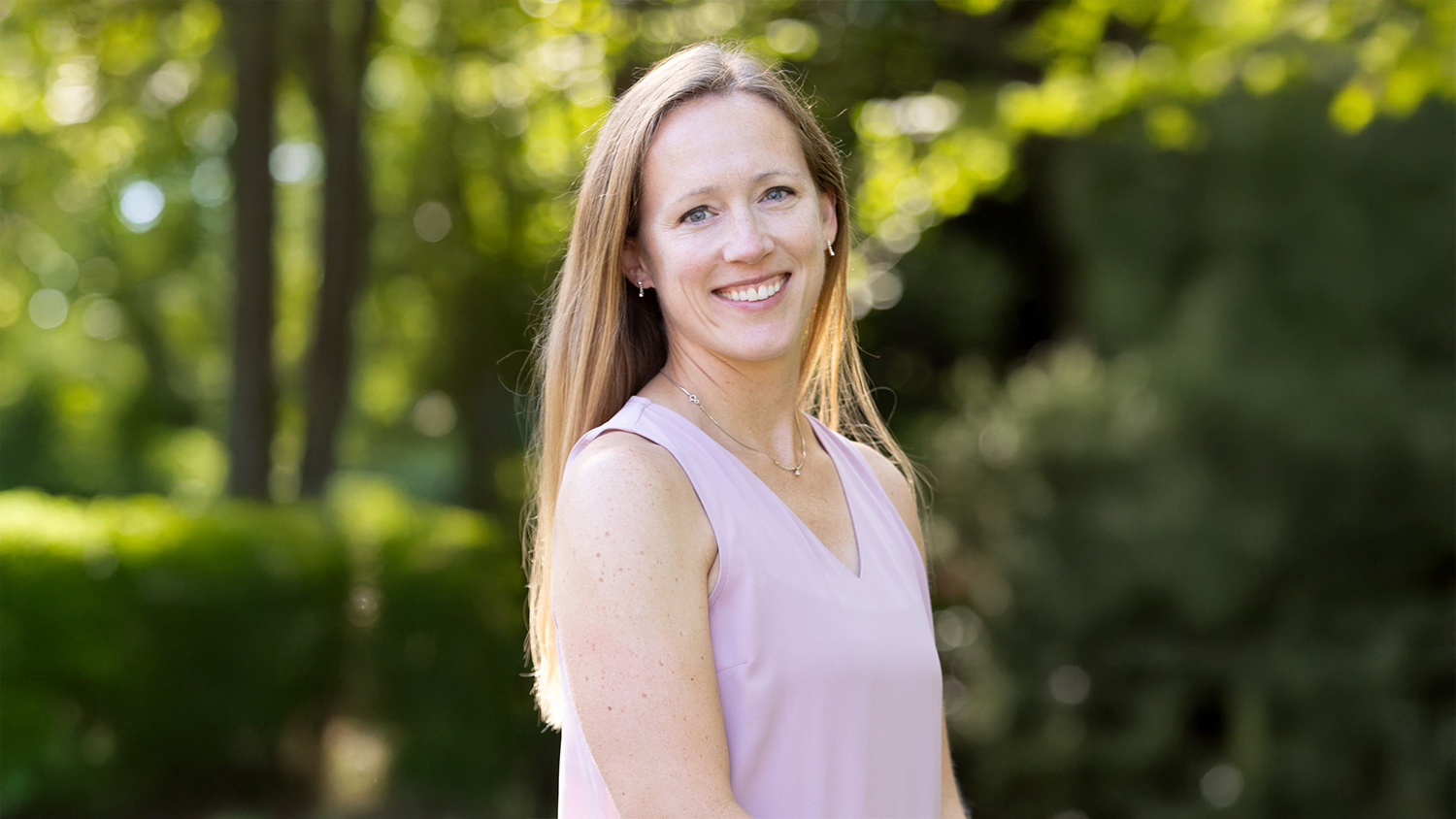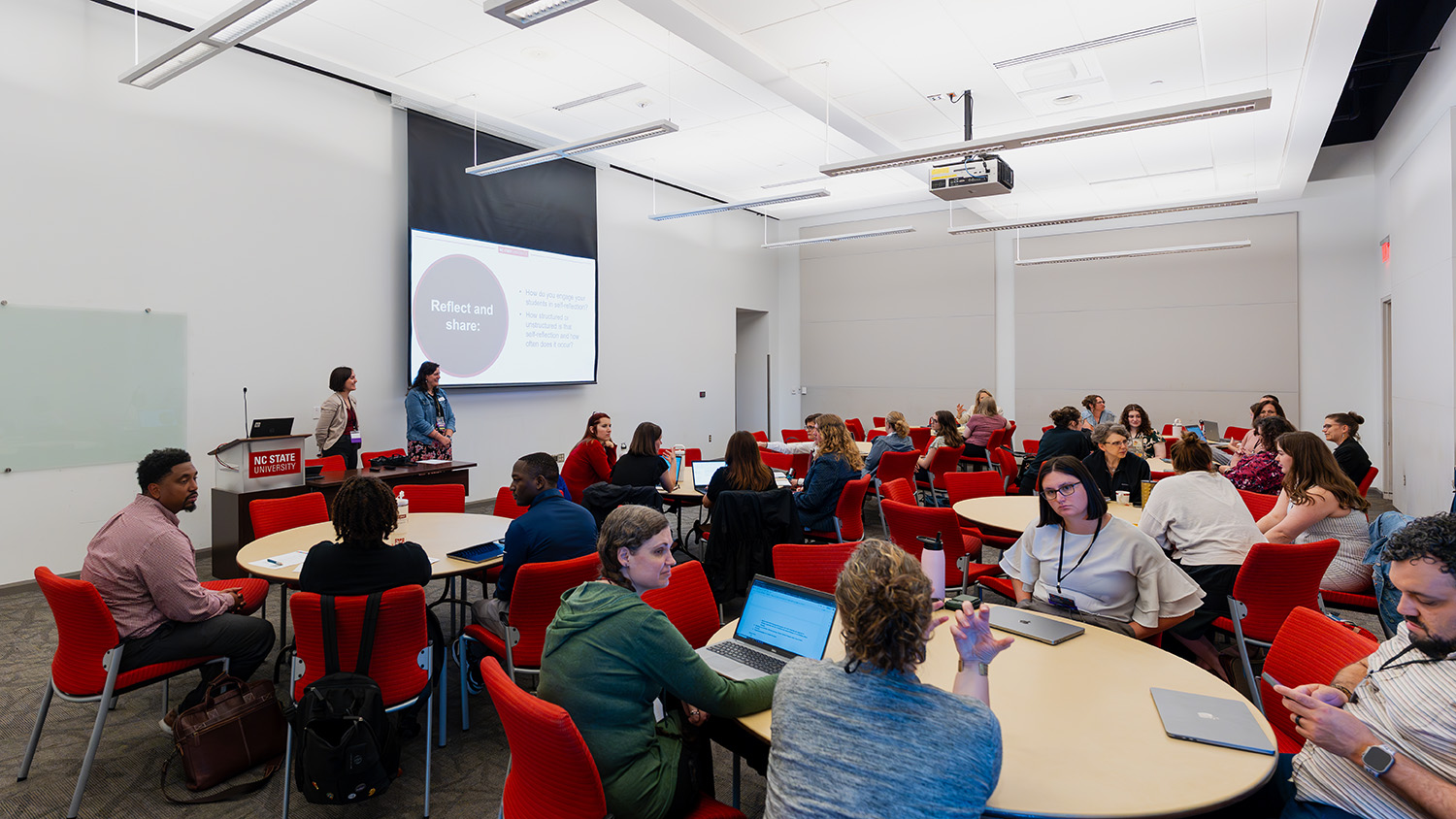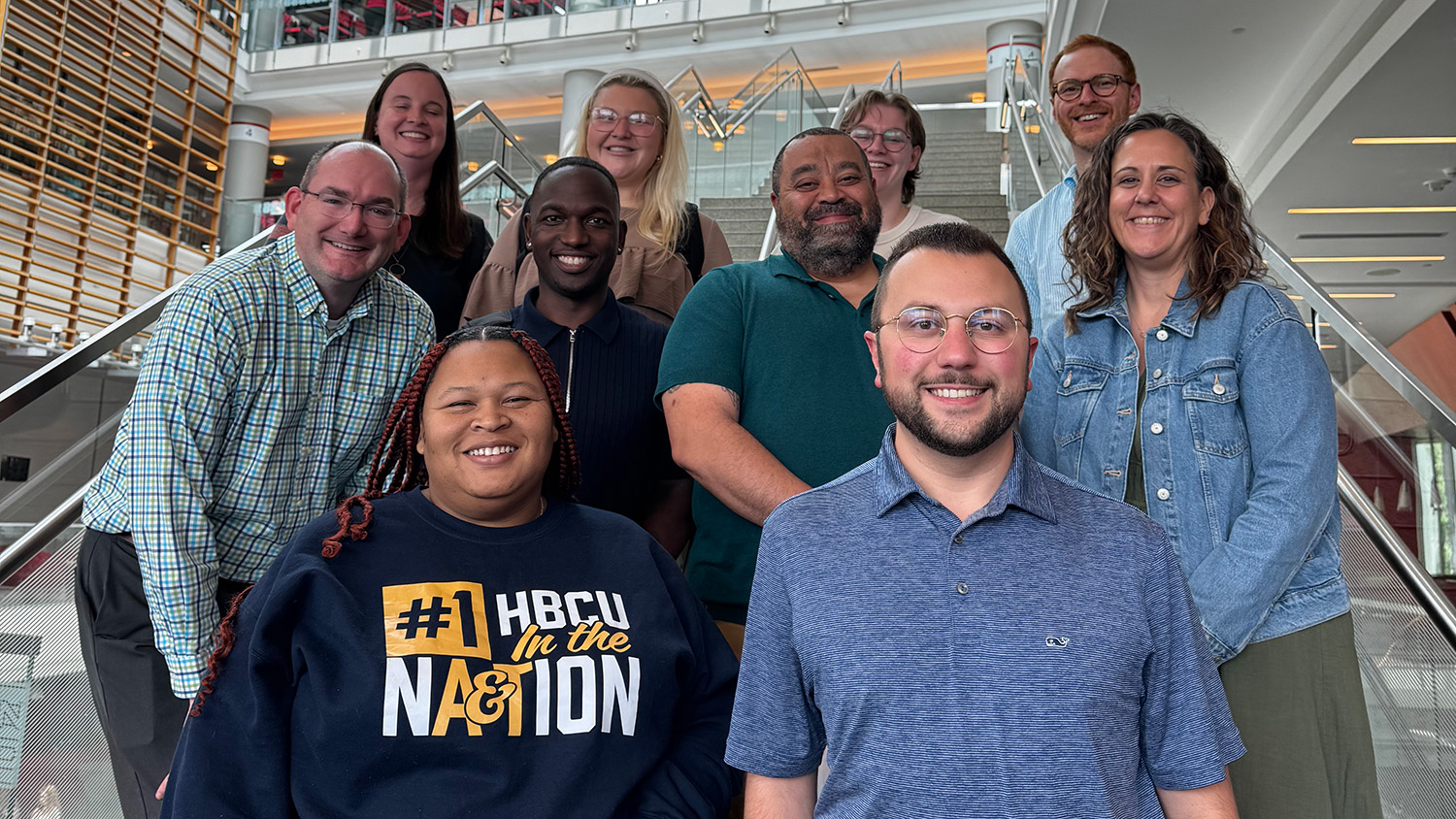Counseling the Pack
The Counseling Center and Prevention Services made a seamless transition to telehealth, and staff and mental health services have been more accessible than ever before during the COVID-19 pandemic.
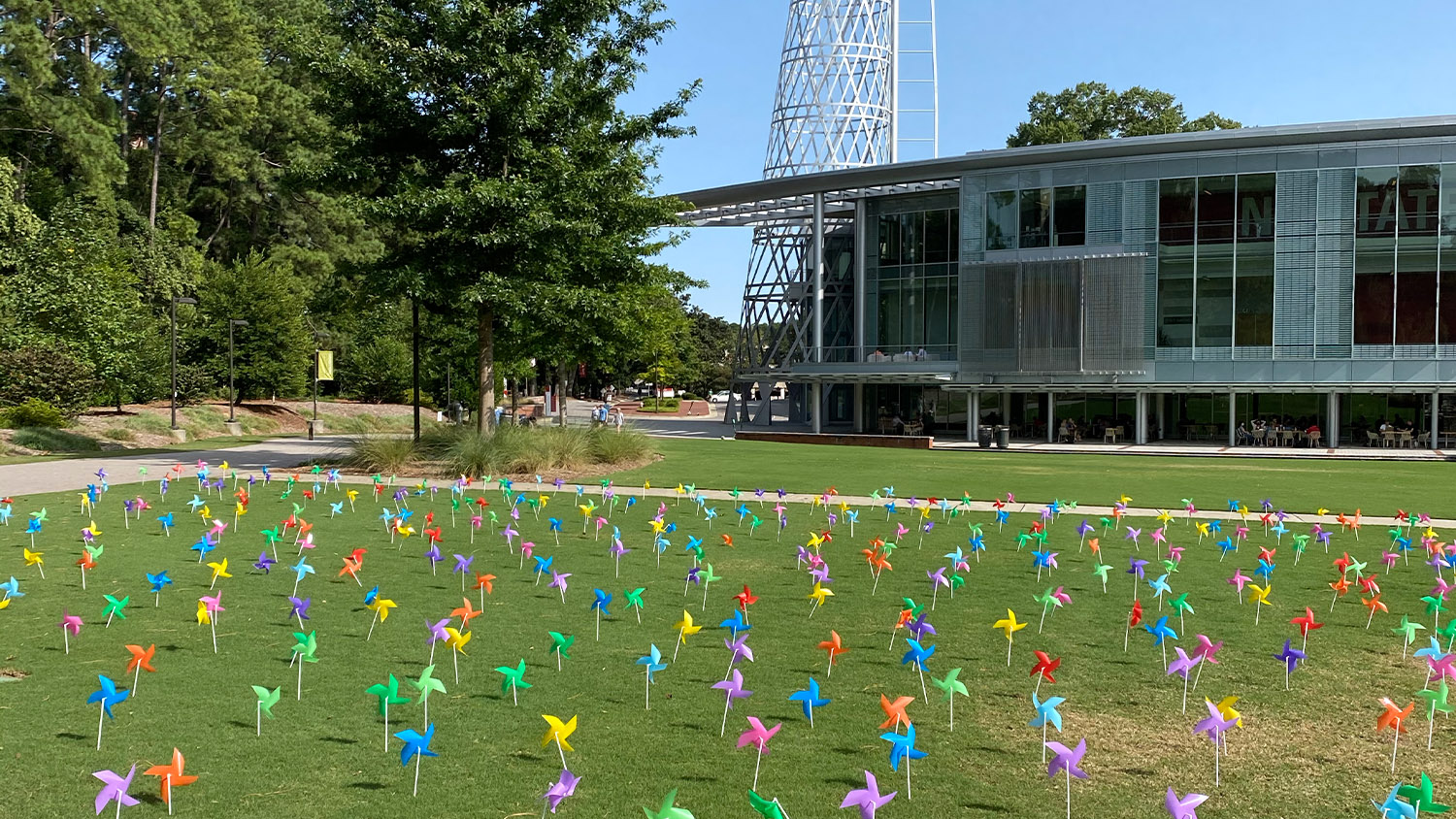
Last fall, NC State’s Counseling Center and Prevention Services distributed a Healthy Minds survey to a random group of 4,000 NC State students. Of those who responded, 55.1 percent indicated that they were currently experiencing symptoms of at least one mental health condition (anxiety, depression, eating disorders, suicidal thoughts, etc.), and 52 percent had received mental health care within the past year.
Despite the high percentage of students receiving care, Monica Osburn, executive director of the Counseling Center and Prevention Services, felt that she and her team still had much work to do.
“The fact that 52 percent of them indicated they were getting care in the last year is great,” Osburn said. “However, when you take that number and extrapolate it to the population of NC State students, that’s 9,378 students who were experiencing a significant mental health condition and not receiving care. That’s our treatment gap. These aren’t national numbers or projections. These are our students.”
For Osburn and her team, one of the silver linings of the COVID-19 pandemic has been the narrowing of that treatment gap due to an expansion of online services and improved outreach to students who might not have previously sought or had access to mental health care and resources.
Going Online and Answering the Call
Like every other department at NC State in March, the Counseling Center and Prevention Services shifted all of their initiatives, counseling sessions, and other programs to a 100 percent virtual format. Osburn’s teams worked diligently and quickly to make the telehealth transition, and within a week, all patient forms were moved online and all counseling appointments were shifted to Zoom Breakout Rooms and phone calls.
After some hiccups in the beginning, Osburn said the appointment process is now running as smoothly as ever before.
“At this point, it’s seamless and it’s amazing,” Osburn said. “We’ve learned so much and we’ve really worked hard to break down those barriers of access for students and still give them a personal touch — a human to see and a conversation to have, a friendly smile and a nod of support that says ‘We know this is hard, but we’ve got you.’”
Despite the many unique stressors students are facing in 2020, the number of virtual appointments at the Counseling Center in 2020 has closely mirrored the number of in-person visits in 2019. Students are still coming to appointments with many of the same conditions like depression, anxiety, eating disorders, and relationship issues as well.
“What COVID-19 has done is it’s compounded those issues because now we’re adding significant isolation, loneliness, and the complexity of those relationship issues,” Osburn said. “Those factors, along with the national tensions, racism, and political divisions have all exacerbated and created these significant complexities in how we are treating mental health conditions.”
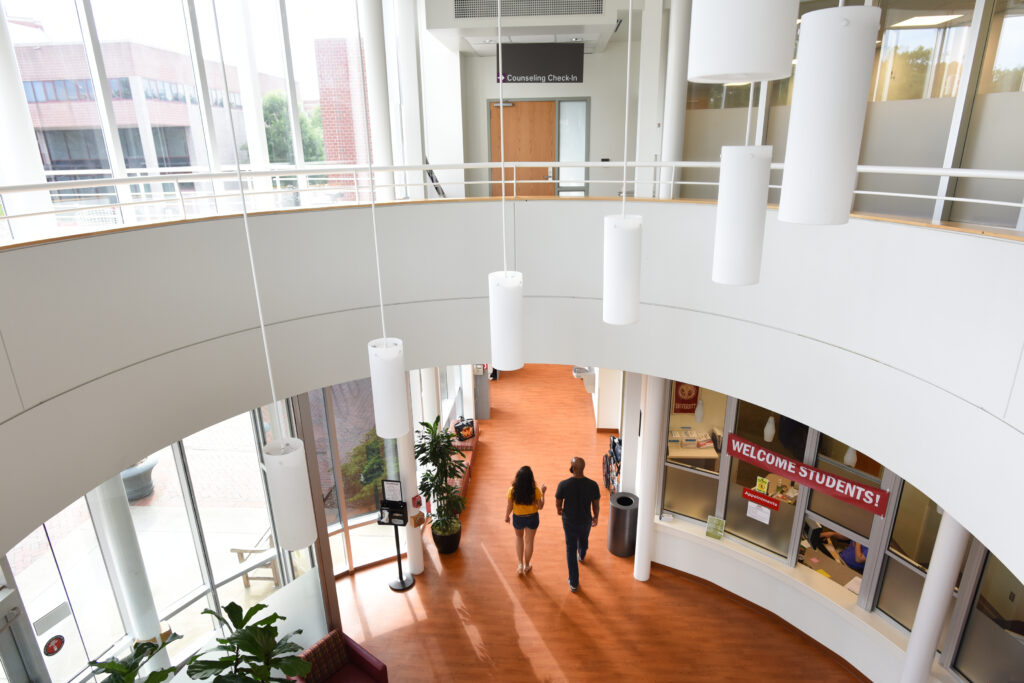
One of the groups most affected by COVID-19 is international students. Osburn and her team have been working to assist those students, who are coping with financial, housing, and food insecurity caused by the pandemic.
“Our international students have been significantly impacted, and with the recent executive order coming out there are even more potential risks to their academic process,” Osburn said. “Many of them haven’t been able to go home or come back, and there’s also been a significant impact on their ability to work because many of them had on-campus jobs and those positions aren’t available now. So, the financial implications for many of those students are now significant because these students can’t just go get a job in the community.”
The pandemic, as well as the recent racial and political climate, have taken a toll on Osburn and her staff as well.
“This has impacted all of us, and as a team, we’re struggling ourselves,” she said. “The health risks, the national traumas, and tragedies — the holding of all of this as individuals is hard enough, but when you work in a mental health field and you are holding all of the students’ pain as well. It’s an exponential impact, and our staff is feeling that. And yet, they get up every day and answer another call.”
Finding the Silver Lining
Despite many challenges, the transition to telehealth has brought about many positive changes to the Counseling Center and Prevention Services as well. In particular, the department has revamped its outreach efforts to include a wide variety of programs and events to help keep students connected during their remote college experience.
One of the most popular new programs is Prevention Services’ drop-in spaces. These casual, weekly, virtual events feature a variety of different subjects and themes, from horticulture and art to grief and addiction, and allow students to talk in a safe environment while also socializing with their peers. Many of the programs are co-hosted by other departments within the Division of Academic and Student Affairs and the university, such as the Women of Color Collective with the NC State Women’s Center and Finding Your Happiness with Wellness and Recreation.
Angel Bowers, associate director for Counseling and Prevention Services, oversees the Prevention Services’ outreach efforts and refers to these programs as “counseling lite,” since they offer students a great introduction to counseling.
There’s still a lot of stigma around counseling, and particularly now in the remote world people are wondering what that looks like.
“There’s still a lot of stigma around counseling, and particularly now in the remote world people are wondering what that looks like,” Bowers said. “So, having an intro that feels a bit safer and non-committal is very helpful for students who are on the fence about counseling and gives them a sense of what it looks like before taking any next steps. It really allows them to see the different grades of support available to them.”
Outreach efforts have also expanded to include Instagram Live and Facebook Live events. There have been several Q&As and information sessions for students, and one event even drew 2,200 parents of first-year students.
“They had lots of great questions about their students’ mental health at this time and how they can support them at home, how they can help connect them with resources, and how they can tell the difference between the impact of world events versus true depression or anxiety,” Bowers said.
Going online has also allowed the Counseling Center and Prevention Services to better serve another previously underserved demographic: distance education students. Prior to the shift to telehealth during COVID-19, students who lived off campus and did not pay the student health fee were ineligible to use Counseling and Prevention Services. Now that the majority of students live off campus and all appointments are taking place virtually, all students are eligible. Students are also seeing better continuity of care since they can virtually meet with the same counselor year-round, whether it be an NC State counselor or a specialist off campus.
“What COVID-19 has demonstrated is that we absolutely can provide quality services in a virtual platform,” Osburn said. “We are seeing the students that we work with in counseling continue to improve and do well in a virtual setting, and we have the data to demonstrate that. So, one of the things we need to critically look at moving forward is access and what is stopping us from providing access to mental health services for our distance education students.”
Adapting with the Times
Several Counseling Center and Prevention Services staff members, in particular, have shined during dark times this year. Following the court ruling in the Breonna Taylor case last month, counselors Rose Jerome and Shauna Campbell collaborated with NC State’s African American Cultural Center to quickly implement special drop-in spaces for students who wanted to talk or vent their frustrations. Jerome and Campbell have also worked with Domonique Carter and Whitley Grant in Prevention Services to develop a new program called Black and Boundaried, which allows students of color to talk about world events and their experiences at NC State and beyond in a safe setting.
In addition, Bowers praised Mary Chamblee, marketing and communications specialist for Counseling and Prevention Services, for her promotion of virtual events and other outreach efforts this year.
“The creativity that has come out of our team during the COVID-19 pandemic has been truly outstanding,” Bowers said. “I think some people whose positions look a little quieter or fly under the radar sometimes have really shined in this process, and it makes us remember just how important and valuable each member of our team is.”
As part of her outreach and communication efforts, Chamblee has also started a weekly spotlight on Counseling and Prevention Services’ Mental Health Ambassadors. Mental Health Ambassadors are a group of undergraduate and graduate students with a passion for mental health awareness, equity and inclusion, and breaking down barriers for all students to access support or treatment on campus.
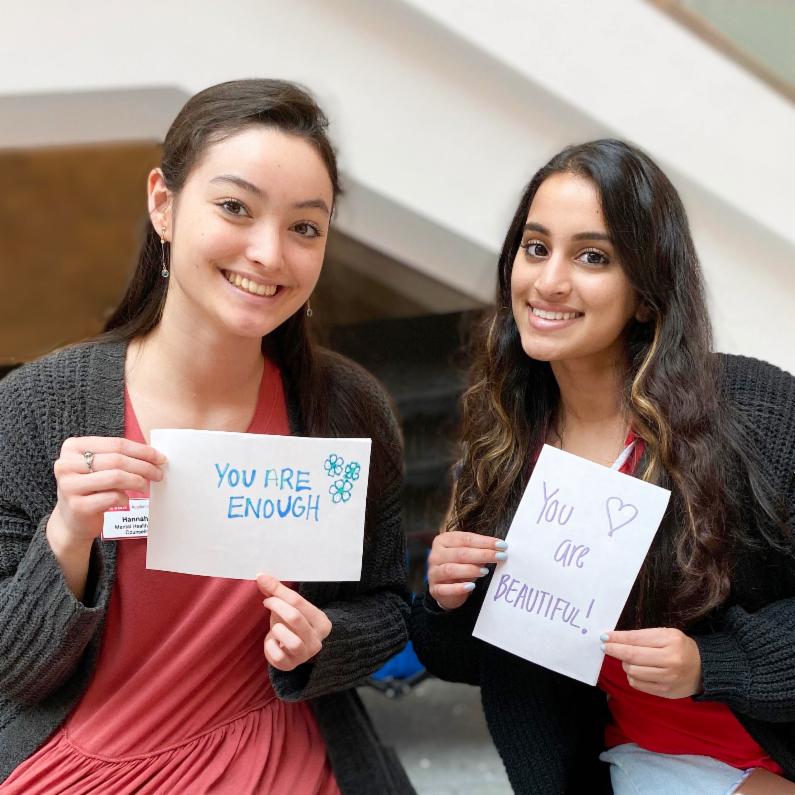
Lizzie Dunsmore became a Mental Health Ambassador after overcoming her own struggles with mental health, and had a passion to help others in similar situations. This summer, Dunsmore helped facilitate the Start the Convo drop-in space for Summer Start students as well as some sessions for New Student Programs’ Transition Talks series. She also worked with Chamblee as a social media intern, where she helped promote the #BIPOCMentalHealthMonth series about the stigmas around people of color seeking mental health services.
For Dunsmore, one of the biggest challenges as a Mental Health Ambassador during the pandemic has been keeping her peers engaged as all in-person programs have moved online.
“It’s definitely been a change from the pre-COVID-19 world,” Dunsmore said. “I think there’s more of a barrier with starting something new because folks spend all day on Zoom, and probably don’t want to go to another meeting at the end of the day, where they’re not even sure if it’ll be worthwhile or fun. I know I’ve definitely experienced that.”
As a student coping with the effects of COVID-19 herself, Dunsmore is grateful for the opportunities to engage with her classmates.
“I’m fortunate that no one I know has gotten COVID-19, but I know that’s not the case for many people,” she said. “I think there’s just a higher level of stress when it comes to going outside or meeting up with folks, even if it’s in a socially distanced way. I know the amount of stress is pretty pervasive, but I also think that this is why the Counseling Center and Prevention Services are here. They have the resources to help folks figure out how to manage their stress in a healthy way.”
If you are experiencing anxiety, depression, or other mental health concerns or want to attend Counseling and Prevention Services programs, please visit https://counseling.dasa.ncsu.edu/.
